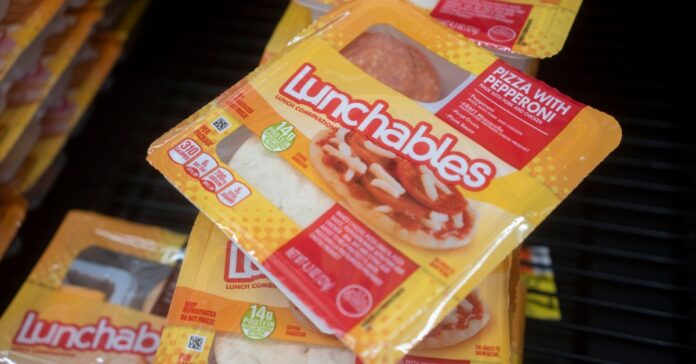
Consumer Reports has published a new study that found that the popular kids’ food product Lunchables have unsafe levels of lead and other chemicals in them. Lunchables are made by Kraft Heines and are a popular lunch or snack food for children (depending on the size of the child). Parents have been using Lunchables as a quick and convenient way to feed their kids for decades but may want to reconsider after learning what’s really in them.
“There’s a lot to be concerned about in these kits,” said Amy Keating, a dietitian at Consumer Reports. “They’re highly processed, and regularly eating processed meat, a main ingredient in many of these products, has been linked to increased risk of some cancers.”
Consumer Reports tested 12 of the most commonly sold Lunchables products and found that five of them had “relatively high levels of lead and cadmium.” Cadmium is a chemical element that is a known carcinogen. It’s also been linked to kidney disease and problems with the skeletal and respiratory systems.
The products also contained 50% more lead than the legal amount in California. The Centers for Disease Control and Prevention (CDC) notes that there is no safe amount of lead for children to ingest.
Another worrisome finding about the Lunchables was the amount of sodium they contain. Each product contains between 460 and 740 milligrams of sodium, almost half of the daily recommended amount for a child.
“We don’t think anybody should regularly eat these products, and they definitely shouldn’t be considered a healthy school lunch,” said Eric Boring, the chemist for Consumer Reports who conducted the testing.
Consumer Reports is calling on the Department of Agriculture to remove Lunchables from its program that provides free and low-cost meals to children in schools.







